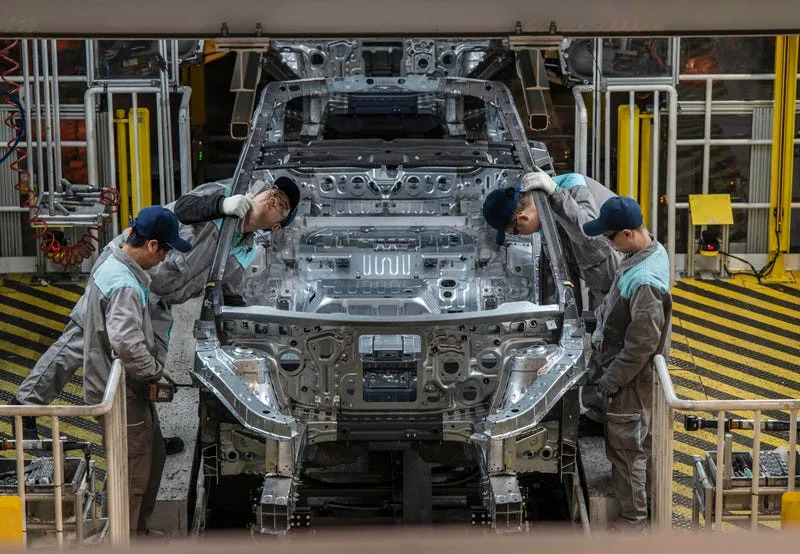
Tesla’s ( TSLA ) European sales halved in April as consumer sentiment toward the U.S. battery-electric vehicle (BEV) maker continues to sour and Chinese competitors deepen their market share in the region.
Tesla saw a 49% drop in sales last month compared to a year earlier, according to data published by the European Automobile Manufacturers’ Association (ACEA) Tuesday. The firm had hoped upgrading its Model Y this year — its most popular vehicle — could boost demand, but April’s decline was the fourth in a row.
The firm’s woes are at odds with growing demand in the region: BEV registrations rose by more than a quarter in April, while overall car sales were relatively unchanged. In 2023, the European Union set a target for all cars and vans sold by 2035 to have zero CO2 emissions, creating a windfall for BEV makers.
Tesla had been winning the race but now appears to be slowing down. Its share of the total European auto market plunged to 0.7% from 1.3% a year ago. Meanwhile, Chinese, and even Japanese, rivals are gaining ground — registrations at SAIC Motor and Mitsubishi grew by 24.5% and 22.1% respectively. BYD ( BYDDY ) registrations also overtook Tesla’s for the first time.
Demand for the American EV brand is waning for a few reasons.
Backlash against CEO Elon Musk’s involvement in the Trump administration has kept some buyers away: A January YouGov survey found that over 70% of respondents in both Germany and the U.K. held a negative opinion of Musk.
Secondly, Chinese models are increasingly cheaper and more advanced than vehicles made in Europe and the U.S. For instance, BYD’s Qin L starts at around half the price of a Tesla Model 3, according to Electrek. Meanwhile, Xiaomi’s SU7 starts at around $2,500 cheaper than the Model 3, offers a battery pack with 10% more range and tech features that Tesla lacks, like a heads-up display.
Lastly, firms have been agile when it comes to evading the bloc’s tariffs on Chinese-built EVs — as high as 45.3% for come models — introduced last year. For example, plug-in hybrid electric vehicles (PHEVs) are subject to lower tariffs of around 10%, thus some companies have shifted their focus to these cars, Reuters ( TRI ) reported . Moving manufacturing to European plants is also a tactic being deployed. Chery Auto, China’s top automaker by export volume, opened a plant in Spain in 2024. BYD announced this month it’s also setting up EU headquarters in Hungary, as part of a push to manufacture its Europe-bound vehicles locally.
For the latest news, Facebook , Twitter and Instagram .

